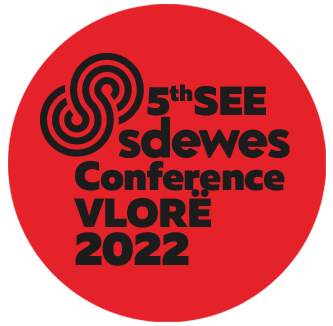mobile
UPCOMING CONFERENCES
PAST CONFERENCES
- 5th Latin American SDEWES Conference 2026 Cartagena
- 20th SDEWES Conference 2025 Dubrovnik
- 1st African SDEWES Conference 2025 Oujda-Saidia
- 19th SDEWES Conference 2024 Rome
- 2nd Asia Pacific SDEWES Conference 2024 Gold Coast
- 4th Latin American SDEWES Conference 2024 Vina Del Mar
- 18th SDEWES Conference 2023 Dubrovnik
- 17th SDEWES Conference 2022 Paphos
- 3rd LA (Latin American) SDEWES Conference 2022 Sao Paulo
- 5th SEE SDEWES Conference 2022 Vlorë
- 16th SDEWES Conference 2021 Dubrovnik
- 15th SDEWES Conference 2020 Cologne
- 4th SEE SDEWES Conference 2020 Sarajevo
- 1st Asia Pacific SDEWES Conference 2020 Gold Coast
- 2nd LA SDEWES Conference 2020 Buenos Aires
- 14th SDEWES Conference 2019 Dubrovnik
- 13th SDEWES Conference 2018 Palermo
- 3rd SEE SDEWES Conference 2018 Novi Sad
- 1st LA SDEWES Conference 2018 Rio de Janeiro
- 12th SDEWES Conference 2017 Dubrovnik
- 11th SDEWES Conference 2016 Lisbon
- 2nd SDEWES SEE Conference 2016 Piran
- 10th SDEWES Dubrovnik 2015
- 9th SDEWES Mediterranean 2014
- 1st SDEWES SEE Ohrid 2014
- 8th SDEWES Dubrovnik 2013
- 7th SDEWES Ohrid 2012
- 6th SDEWES Dubrovnik 2011
- 5th SDEWES Dubrovnik 2009
- 4th SDEWES Dubrovnik 2007
- 3rd SDEWES Dubrovnik 2005
- 2nd SDEWES Dubrovnik 2003
- 1st SDEWES Dubrovnik 2002

"History teaches us that men and nations behave wisely once they have exhausted all other alternatives"
Abba Eban
"Then I say the Earth belongs to each generation during its course, fully and in its right no generation can contract debts greater than may be paid during the course of its existence"
Thomas Jefferson, September 6, 1789
"You never change things by fighting the existing reality. To change something, build a new model that makes the existing model obsolete."
Buckminster Fuller, philosopher, futurist and global thinker (1895 - 1983)
JOIN US IN VLORË!



